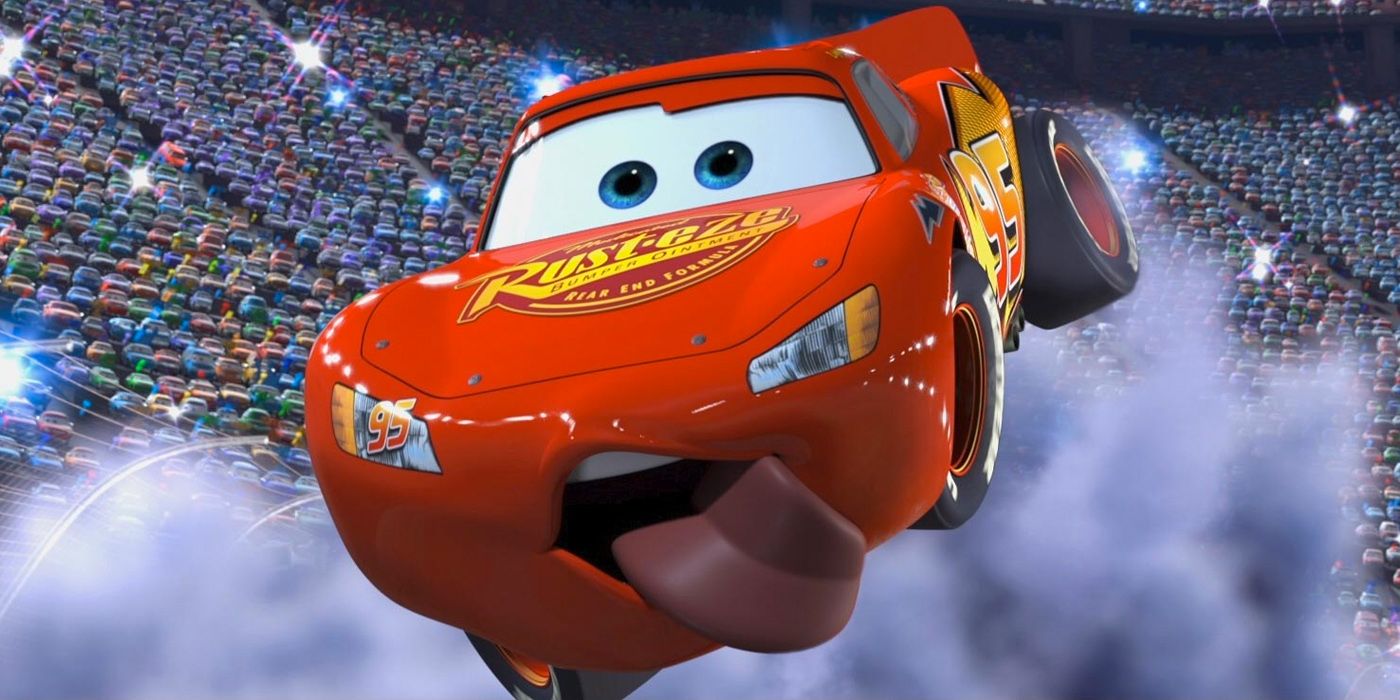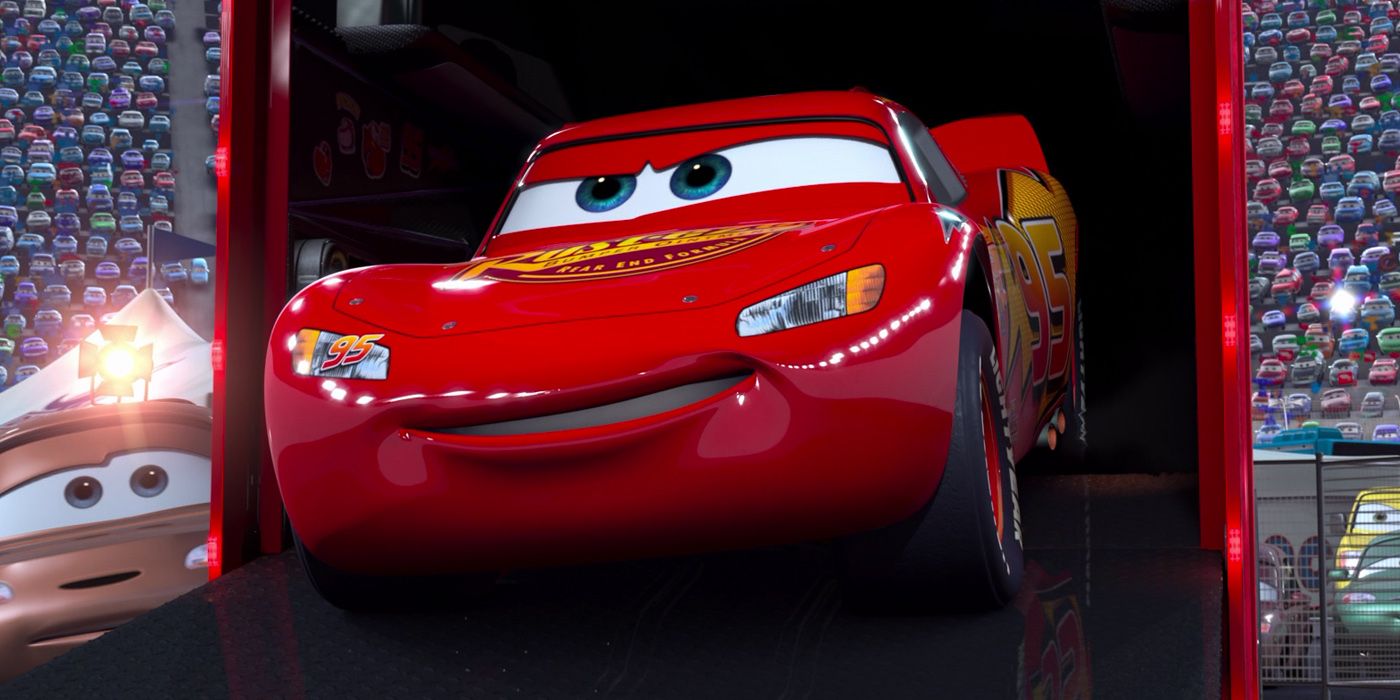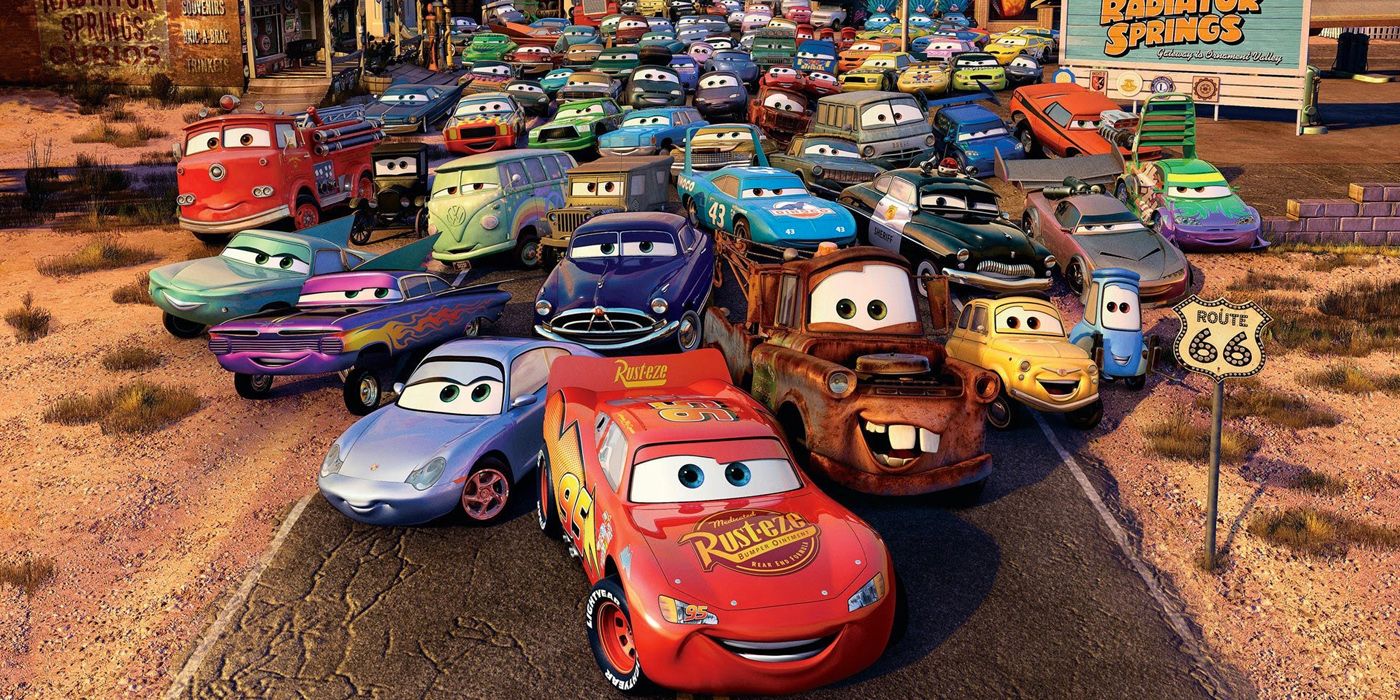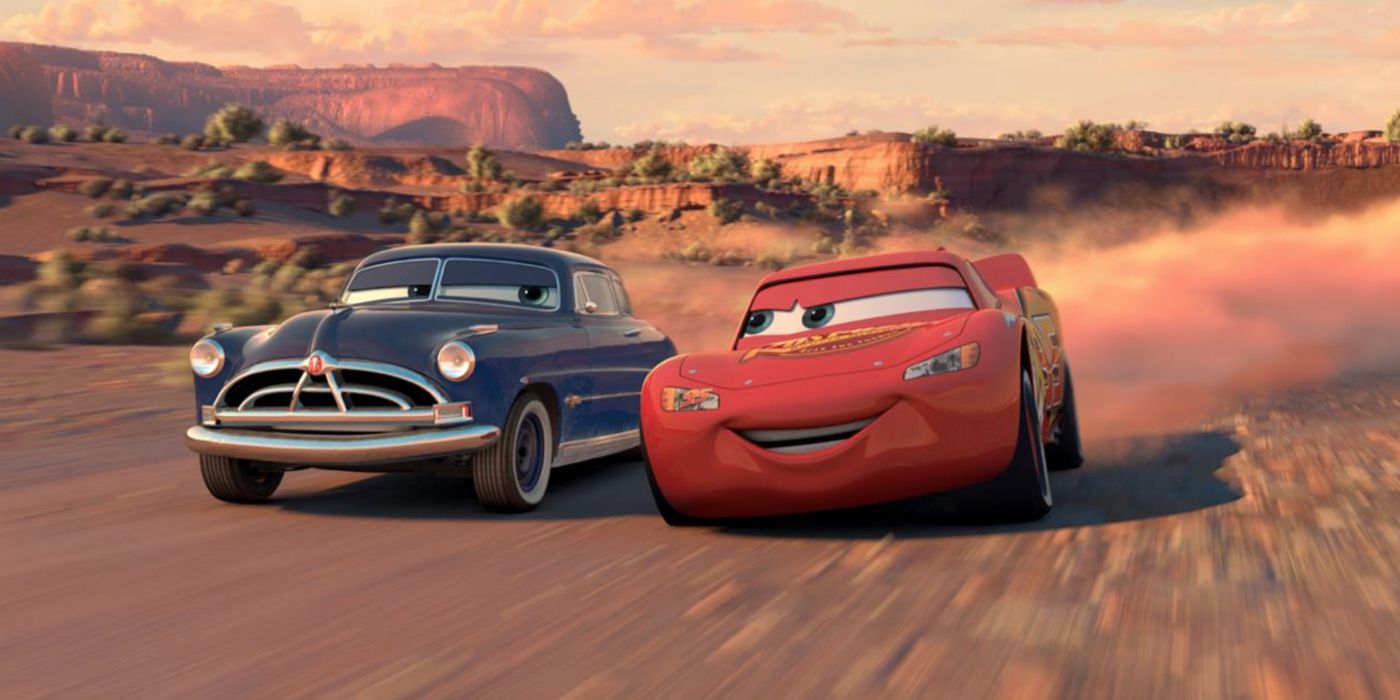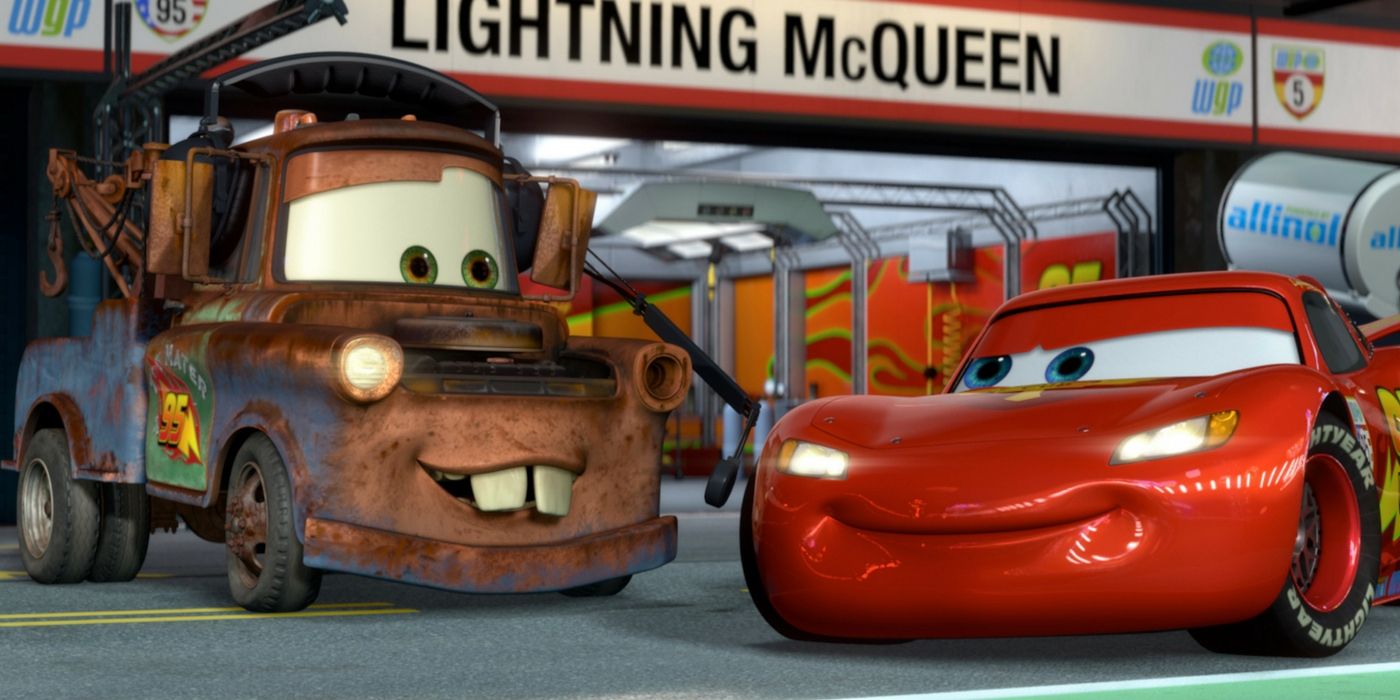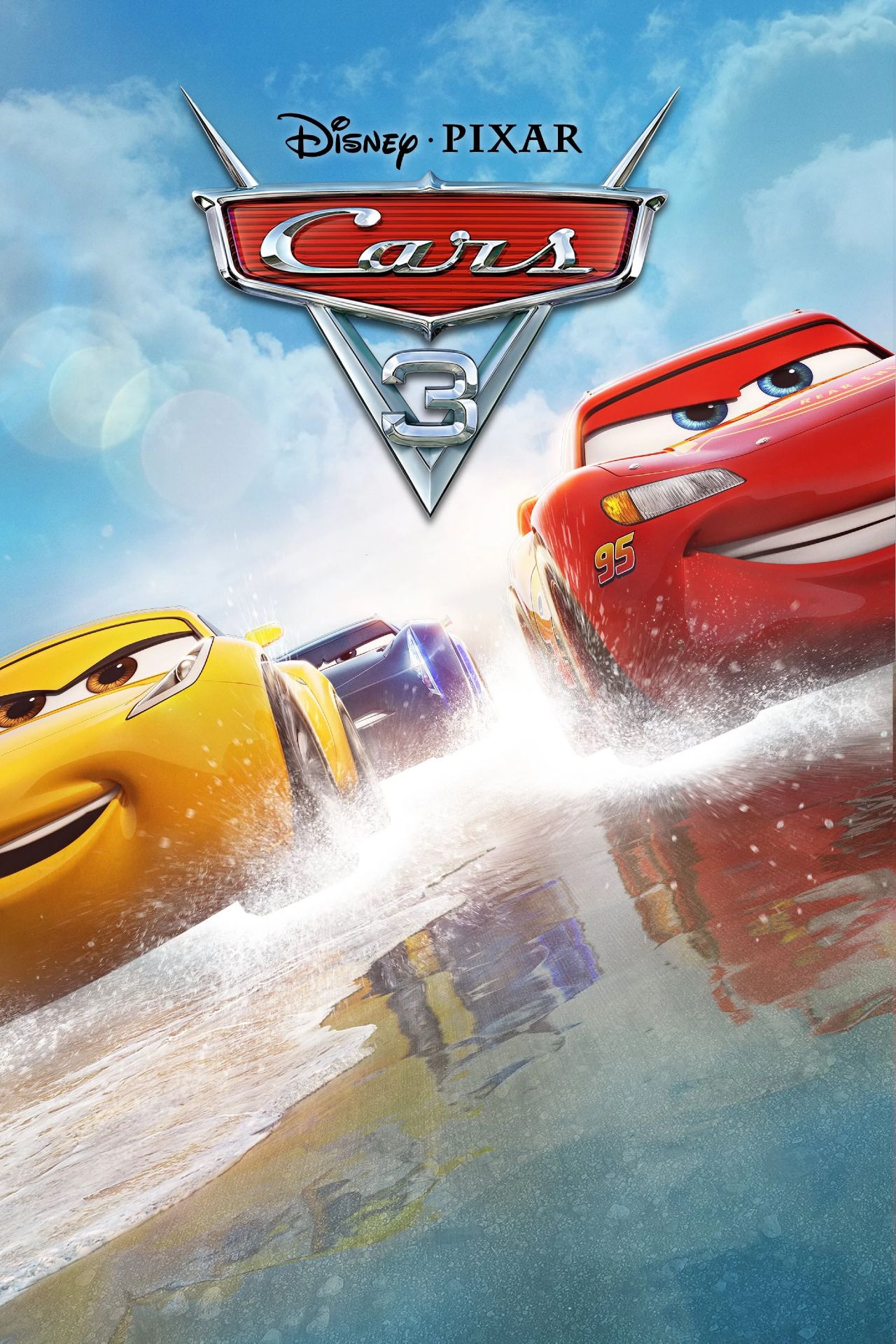It's become the punching bag of Pixar, but after over a decade can't we finally admit that Cars is underrated? The release of Cars 3 brings with it not only another merchandising blitz of cartoonish, anthropomorphized vehicles for children but also the chance for their parents and other adults to bemoan the Emeryville Titans' reviled franchise. While most cinephiles tend to go rather easy on Pixar's lesser work due to the usual immense quality of their output - indeed, The Good Dinosaur is most remarkable for being totally forgotten - when it comes to Cars the hate flows strong; you'll usually see it and its sequel right at the bottom of rankings and often cited as actively bad.
We'll take a look at actual quality later on, but for now let's state that the first film was per the numbers a success - 74% certified fresh on Rotten Tomatoes, $462 million at the worldwide box office and who knows how much more in merchandising. However, unlike previous Pixar films that had all played just as strong to adults as it had children (to the point where some more recent films, such as Up and Inside Out, have been accused of being too mature or complex for the U rating) it skewed to a much younger audience. Whereas the likes of Toy Story or Monsters, Inc. were deft classics, this felt more disposable as entertainment yet synergised as a brand.
Sure, Cars doesn't hold a candle to Pixar's best, but to act like not being top tier is somehow a failure when said top tier has some of the best films from the past twenty years in it is wholly unfair. Especially when you've got something as personal and misunderstood as Cars.
The Pre-Release Hate Colored Everything
Before we jump to how things evolved, it's first important to note how much was working against Cars from the start. Whereas toys coming alive or monsters in the closet are universally relatable concepts - Pixar were just refining them - the idea behind Cars is more focused and thus niche; it's not about our cars being alive but is instead centered on a world of vehicles. Within that the setting is mainly backwater hicks and Nascar tracks, two things that directly affront the coastal sensibilities of the studio's previous films and the audience they'd built up. Throw in Larry the Cable Guy as support and you've made something that's intrinsically going toffense offence.
That world distinction has been a point of ridicule since the project's first look. The reveal of windshields being the eyes - as opposed to the universally accepted headlights - was widely derided to begin with and many a mocking piece has been constructed highlighting the confusing inconsistencies of biology and social structure in the Cars world (trying to explain this is pretty much the grounding of the unifying Pixar Theory). And, yes, for a company whose world building is usually so deft you don't question the ridiculousness of how toys actually come to life or why pulling strands of hair allows humans to be used as puppets it's certainly disappointing that everything seems to have been constructed for immediate gratification and easter eggs rather than coherent story.
But while this is the only time in the Pixar canon not dealing with a world hidden our own, rather a strange parallel, the resulting problems aren't unique to Cars. In fact, it's pretty much the case for any anthropomorphized society. The only example where it's unquestionably done well and with purpose is Zootopia, and that was mainly because it raised it as a theme - the make up of the world is still of questionable logic. However, just as it didn't harm Disney's Oscar chances (Zootopia won Best Animated Feature) neither should it be taken as Cars' major flaw. And, indeed, as time went by a new reason to dislike it emerged.
Next Page: [valnet-url-page page=2 paginated=0 text='Is%20Merchandisable%20Pixar%20Inherently%20Bad%3F']
Is Merchandisable Pixar Inherently Bad?
Stepping beyond those base-level early criticisms and looking at the film and its impact, the enduring problem people seem to have with Cars is the toys. Or rather, the way everything appears to be have been crafted with toys in mind.
Indeed, out of all Cars' successes, the one that people most readily point towards is the merchandising. Even more so than Toy Story, it is Pixar's biggest income for auxiliary sales; action figures obviously but also bedsheets and bags and clothing and basically anything you could smack Lightning McQueen's face onto it. As some people tell it, it was less a movie than it was a marketing exercise. The fact the second film (which we will not be defending) wound up being the undebatable worst film from the studio while adding even more vehicles (with a boy-baiting spy theme to boot) certainly didn't help matters, but to many it was taken as was more proving the point; Cars was the big business Disney-ification of the once creative Pixar.
To a degree, this is hardly debatable. That headlight/windshield switch-up is explicitly done to give every character wide-eyed expressions that simply convey emotion and the designs of the characters are so rounded down and cartoonish they're almost focus grouped with Hasbro. Add to that the sheer scale of the world, and you can read Cars as a massive toy commercial.
However, that's really a rather simple reading of the Pixar process. After all, this design approach true of most animated films - from humans to emotions - and not just done to develop merchandise; if you're making a movie targeted at a young demographic you need each character to be recognisable and evocative. Look at Woody and Buzz, Mike and Sully, Carl and Russell; they're all exaggerated for visual storytelling to a young age range first and foremost. As that one good joke about headlights in Cars 2 highlighted, the characters were to a degree made as they are to be likable for the movie's runtime above all else.
It's important to understand the creative angling of all this. After all, the film comes from John Lasseter; he's the man who first kick-started Pixar as an animation house and later became head of Disney Animation shortly after Cars' release, whose first move was to can the studio's seemingly incessant attempts to tarnish its legacy with straight-to-video sequels for all its classics. He's a creative man first and foremost, balancing corporate and artistic. We've seen compromising similar issues with Disney/Pixar's relationship come from the company's move into sequels; Andrew Stanton admitted Finding Dory was a top-down request but clarified that by saying they he and his team were given time to get it right.
From everything we know, Cars was definitely eyed as a merchandising behemoth by the distributor but was developed by the studio to be as good as it could be in the director's eyes. Contrary to criticism, Cars is focused. The underlying problem is that adult audiences can't grasp one key detail of that - it's made for kids.
Next Page: [valnet-url-page page=3 paginated=0 text='Why%20Cars%20Is%20A%20Different%20Sort%20Of%20Pixar%20Film']
Cars Is The Only Pixar Film Just For Kids
No two ways around it, Cars was different. The majority of the early Pixar classics were conceived over the course of one now legendary lunch in the wake of Toy Story's success; John Lasseter and his core team of founding animators sat down and before the check came developed the pitches for A Bug's Life, Monsters, Inc., Finding Nemo and Wall-E. Cars wasn't the first film not to come from that meeting - The Incredibles, originally started at Warner Bros., followed Nemo - but it was the first where the idea was less a group-honed creative and more personal vision: after Toy Story 2, Lasseter realized he'd spent the better part of a decade making movies and not seeing his kids, so went on a road trip with his family. This tapped into his love of vehicles and showed him the forgotten wonders of Route 66, sparking the idea for his next movie.
Because of these personal origins, the film took shape in an unexpected form; tied into Lasseter's family - specifically his youngest son, born in 1997 - much more so than his previous films, it skewed younger in terms of tone and message. And therein is the cause of everything that's happened since; It's a purer children's film than the generation-crossing rest of Pixar's output, so was naturally going to have less adult appeal. But just because that makes it different shouldn't take away from the fact that as a kid's version of Doc Hollywood it's very effective. It's well-made, well-cast, brightly designed, fun to follow and features an effective moral; an entire generation will learn Rocky's going the distance from Lightning McQueen.
Many accept Cars as what we've just described, but the perceived lack of something more (and the fact that some elements, such as Mater, are intrinsically poor) is often used as a reason to leave it in average-at-best territory. So what if Route 66 closed? That matters naught to the majority of adults. And who hasn't seen the sporting wunderkind story a dozen or more times? But the truth is that it still has a strong emotional core beyond those elements. This is a movie for the Lasseters; John is Lightning, his family the forgotten Radiator Springs and the Piston Cup creative success. He's explaining to himself and his young children what really matters in life.
Cars 2 Reputation Dominates The Franchise
In terms of why Cars is underrated, though, probably the biggest nail in the coffin came with Cars 2. This was the movie where the studio's unprecedented run of form came crashing to an end - the film was a moderate success financially and savaged by fans and critics alike - and because many of its issues are rooted in threads from the first film it led to the original getting an even rougher ride. This is purely for kids to the point it lacks strong narrative coherence, using brightly colored antics in snazzy locales that will only blind those under the age of six.
Like the first film, the sequel came from Lasseter's very unique standpoint. Sadly, here the director's highly involved stance led to him steering into the wrong elements; he's stated the main drive for Cars 2 was imagining how different characters would act while doing the original film's international press tour - this is why Cars 2 centers so much of the action on Mater - letting his own investment blind him to the film's actual strengths and weaknesses.
But that shouldn't color the original. That this film was expanding already controversial elements and wound up so derided is often used as shorthand for Cars' failure as a franchise, but it's really a separate result. With positive attention coming to the threequel, though, it's hopeful that a redemption of Cars is slowly accelerating.

